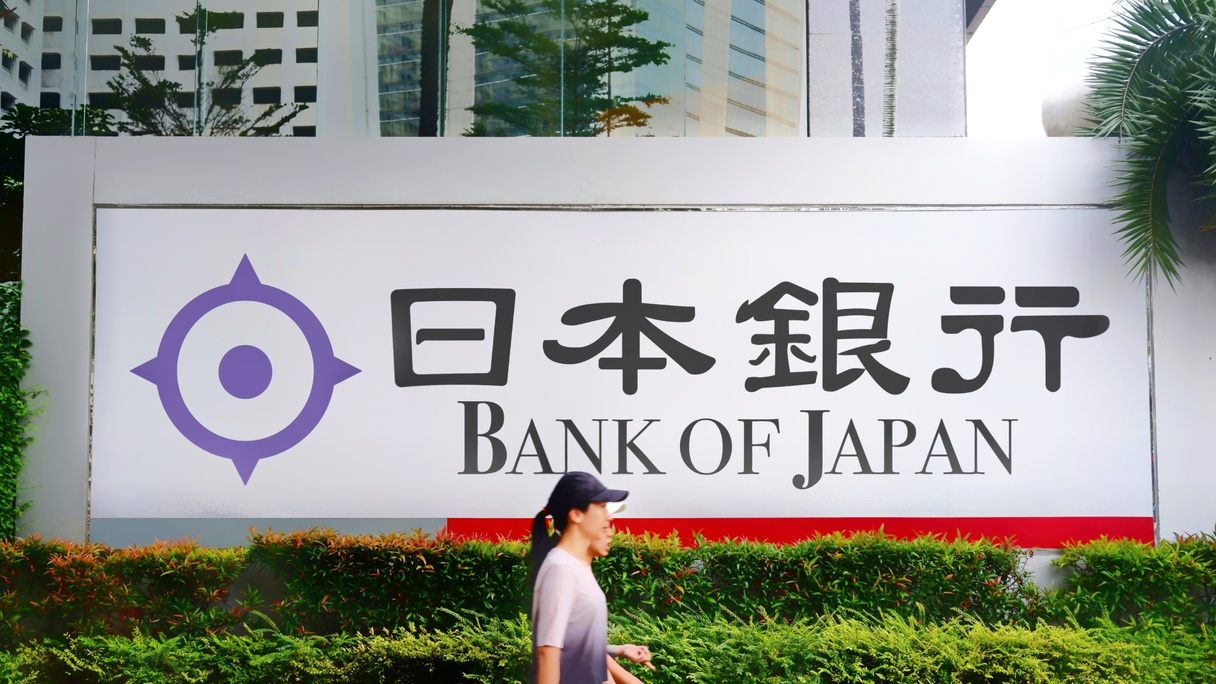The Bank of Japan believes that there is no need to raise interest rates next week and that the market should be "carefully monitored" at present
The Bank of Japan will certainly continue to raise interest rates, a temporary respite is not a long-term plan.
On September 10th, according to media reports citing sources within the Bank of Japan, officials believe there is little need to raise the benchmark interest rate next week. This is due to the committee's ongoing monitoring of financial market volatility and the impact of the bank's unexpected rate hike in July.
Sources say that the Bank of Japan will maintain the interest rate at 0.25% unchanged at the policy meeting on September 20th. In light of recent financial market turbulence, including the Nikkei 225's record largest drop on August 5th, the Bank of Japan believes it is necessary to prudently monitor the market.
Most economists predict that the bank will not consider further rate hikes until the December or January meeting next year. However, these economists also say that the main theme for the Bank of Japan in the future remains to be rate hikes. If the economy and inflation continue to meet expectations, the Bank of Japan will definitely continue to raise interest rates. A temporary pause is not a long-term plan.
They also said that so far, market turmoil has not significantly affected the central bank's outlook from July. The market needs to closely watch the conditions of the economy and financial markets, and if necessary, the Bank of Japan may still raise interest rates before next year.
What is the official stance of the Bank of Japan? Last month, Bank of Japan Governor Haruhiko Kuroda stated that the Bank of Japan would not raise interest rates when financial markets are unstable. Another deputy governor also sent a similar signal, and the Bank of Japan's current top priority is to closely monitor the market. Officials of the Bank of Japan believe that due to the possibility of the US economy being weaker than expected, the Bank of Japan does not need to rush to continuously raise policy interest rates.
At the same time, domestic trends in Japan are also closely monitoring the country's political dynamics, as Japan is about to welcome a new prime minister. Given the ruling Liberal Democratic Party's dominant position in the parliament, it is almost certain that the party's leadership election on September 27th will determine who will succeed Fumio Kishida as Japan's next prime minister. At the current situation, former Defense Minister and member of the House of Representatives Shigeru Ishiba is seen as a hot candidate for this position.
Bank of Japan officials believe that, generally speaking, new leaders will not promote significant changes in monetary policy, as the ruling party has promised that the Bank of Japan will continue to pursue a stable inflation target. According to sources, officials of the Bank of Japan are monitoring each rate hike to determine the most appropriate interest rate level. According to a previous document from the central bank, Japan's nominal neutral interest rate is around 1%.
PIMCO's Japan regional portfolio manager, Kakuchi Tadashi, said in the latest interview, "The next rate hike by the Bank of Japan will be in January next year at the earliest." Regarding current investment opportunities, he advised investors to focus on super long-term government bonds: the yield curve remains steep, and there is no duration demand for purchasing longer-term government bonds. He said, "This is an opportunity worth taking a little risk."
Currently, due to weak investment and the Bank of Japan's reduction in the purchase of Japanese government bonds, the supply and demand balance of super long-term bonds is deteriorating. The Ministry of Finance has also begun to consider shortening the issuance period of Japanese government bonds. However, Kakuchi said that the situation will improve in about six months, and the increase in demand may lead to the stability of the entire bond market.
He stated that although recent volatility has eased, it "will still be higher than the level before the Bank of Japan began policy normalization." However, "for us active fund managers, volatility is always better than no volatility."

·Original
Disclaimer: The views in this article are from the original Creator and do not represent the views or position of Hawk Insight. The content of the article is for reference, communication and learning only, and does not constitute investment advice. If it involves copyright issues, please contact us for deletion.